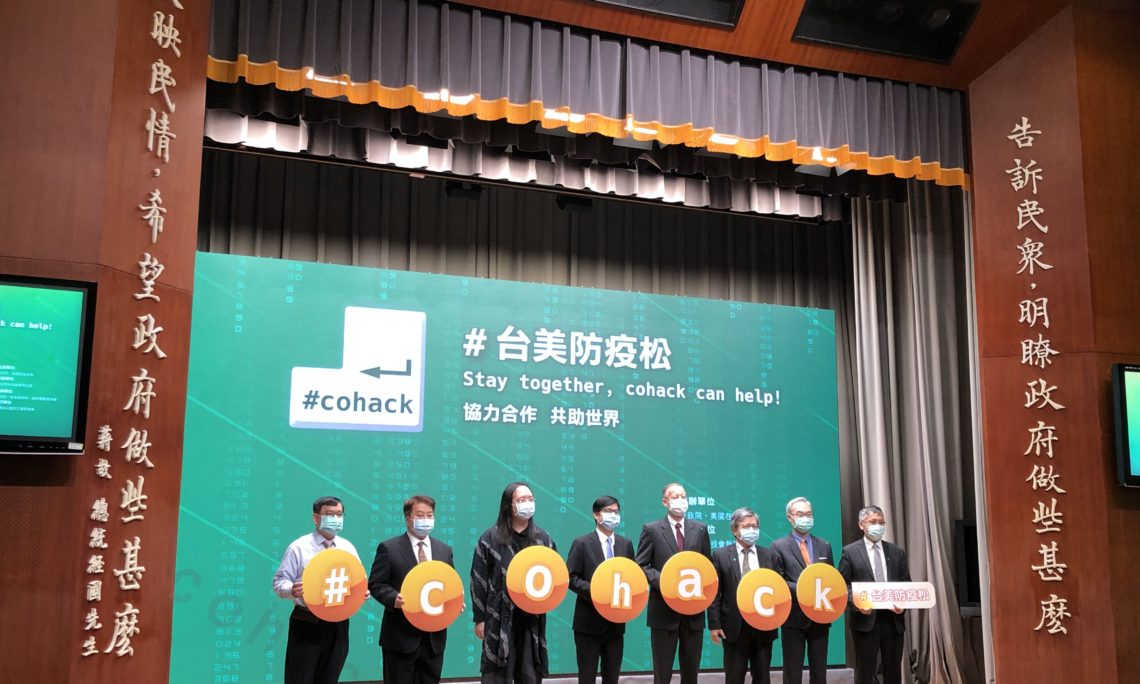OT-2012
April 24, 2020
Remarks by AIT Director W. Brent Christensen
at the COHACK Press Conference
April 24, 2020
(as prepared for delivery)
Vice Premier Chen, Digital Minister Tang, distinguished guests, ladies, and gentlemen, zao an!
It is my distinct pleasure to be here today to help kick off the Coronavirus Hackathon, or “cohack.” Taiwan’s response to COVID-19 has been more successful than any in the world according to nearly all available metrics. Despite its proximity to China and regular cross-Strait flows of travelers and commerce, Taiwan has thus far succeeded in controlling the spread of COVID-19. To date, Taiwan has confirmed just over 400 cases with minimal community spread in a population of 23 million people. International media and countries around the world have taken notice of Taiwan’s success and expressed interest in learning more.
From our perspective, the “Taiwan Model” offers five key lessons for the world which can perhaps be summarized as the “Five Ts”: Transparency, Transportation Controls, Tracking, Testing, and Technology, all of which are on full display with this hackathon.
In terms of transparency, the Taiwan authorities have had robust direct communications with the public sharing information about their approach to preventing the spread of COVID-19 and explaining the related policy decisions. Despite being unfairly excluded from the World Health Organization, Taiwan has nonetheless been open and transparent in sharing its findings with the WHO. The Coronavirus Hackathon will continue in this spirit by democratizing the idea generation process through organizing the cohack Digital Dialogue, making government data publicly available to facilitate the development of new tools, and finally sharing any innovations discovered with the whole world.
For transportation controls, the Taiwan authorities were among the first in the world to begin screening flights, mandating quarantines for travelers arriving from high risk areas, organizing safe transportation, and monitoring quarantined individuals to keep the community safe. The cohack will build upon these successes by devising transportation related innovations to help ensure an optimal transition back to no restrictions, balancing health and economic considerations; protecting essential workers including delivery workers; and caring for vulnerable populations who lack the means to transport themselves to needed services.
When it comes to tracking and testing, the Taiwan authorities have kept meticulous track of individuals at high risk of being exposed to COVID-19, either due to international travel or domestic contact. Taiwan has also adopted a targeted testing protocol based on its rigorous contact tracing. The cohack looks to use artificial intelligence and big data to develop predictive tools to track the outbreak of the virus much in the same way we currently predict the weather, providing policymakers and the general public the information they need to not simply respond to outbreaks, but to stay ahead of the curve and prevent the virus from getting out of control.
The Taiwan Model also incorporates an impressive array of technology applications. When cases of COVID-19 are confirmed, Taiwan uses the data from cellphone towers to determine all of the places a confirmed case recently visited, then send text messages to other cell phones that were at the same places at the same time. They also are using technology to help ensure the rational distribution of face masks and other essential supplies in a democratically responsive and efficient manner. Building on this, the cohack will help develop tools for optimally managing community health resources, not just within individual facilities, but across jurisdictions. New solutions will be developed for supporting frontline medical and other essential workers, all while upholding democratic values of communicating risks to the general public in a way to elicit their voluntary cooperation.
The whole world has much to learn from Taiwan’s example. This hackathon will be yet another example of the fresh thinking one only finds in Taiwan – combining innovative technologies with a commitment to social good.
As our March 18 Joint Statement on COVID-19 cooperation makes abundantly clear, the United States is proud to partner with Taiwan as we tackle this crisis together. The solutions developed in the hackathon will be made available to the whole world. We remain committed to do our part to highlight Taiwan’s model as much as we can through showcasing Taiwan’s public health officials, including Vice President Chen Chien-jen’s address to Johns Hopkins University, and through two virtual Global Cooperation and Training Framework workshops — one on combatting COVID-19 related disinformation and one on preventing the spread of COVID-19 — and through highlighting internationally the solutions developed in this hackathon.
From our perspective, the 5 T’s of transparency, transportation controls, tracking, testing, and technology are a roadmap for the whole world as we seek to navigate our way through the crisis and towards a better world. A long road remains ahead of us all, but the journey will not be lonely when we travel it together with our democratic friends like Taiwan and visionary leaders such as Vice Premier Chen and Digital Minister Tang.
Thank you.
















![Video Thumbnail [Recovered]-01](../wp-content/uploads/sites/269/Video-Thumbnail-Recovered-01-1-750x450.jpg)






